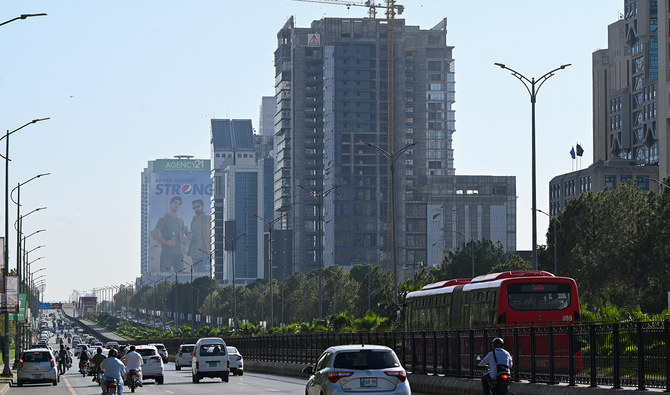ISLAMABAD: The World Bank and Pakistan are aiming for disbursements of around $2 billion to the South Asian country this fiscal year in order to stabilize the frail economy, the Pakistani economic affairs ministry said on Saturday, citing a senior World Bank official in Islamabad.
The statement came after World Bank Country Director Najy Binhassine’s meeting with the Pakistani caretaker finance minister, Dr. Shamshad Akhtar, in Islamabad at which they reviewed the overall performance of the World Bank’s ongoing portfolio in Pakistan and options to further expand collaboration in priority areas to help boost economic activities in Pakistan.
The Pakistani finance minister reiterated that Pakistan valued its development partnership with the World Bank and appreciated efforts of the World Bank management, especially its team in Islamabad, for economic development of Pakistan, according to the economic affairs ministry.
“Mr. Najy Binhassine, while briefing the Finance Minister on ongoing portfolio, indicated that the World Bank Management, in collaboration with Ministry of Finance, Revenue, Economic Affairs and Privatization, is making efforts to not only improve the implementation performance of the ongoing portfolio but also to maximize the volume of disbursement of foreign resources,” the ministry said in a statement.
“He indicated that the joint efforts are targeting disbursements of around $2.0 billion during the current financial year, i.e., 2023-24.”
Pakistan has been embroiled in an economic crisis for the last year, with its foreign exchange reserves depleting, currency devaluing sharply and inflation rising to record highs. The South Asian country has been taking various measures to stabilize its economy, which averted a default in June by securing a crucial $3 billion bailout from the International Monetary Fund.
In her meeting with the World Bank country director, the finance minister shared the reform agenda of the government and the ongoing efforts to stabilize the economy.
“She also informed that the Government of Pakistan is cognizant of the fact that implementation of reforms in the priority sectors, particularly in the energy sector, will allow Pakistan to unleash the growth potential, therefore introducing Policy Reforms in this sector will remain the prime focus of the Government of Pakistan,” the statement read.
The finance minister commended the immediate support of the World Bank during the 2022 floods in Pakistan, but asked the official to further extend the World Bank support for Pakistan to better cope with the emergency needs.
















